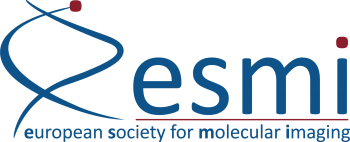Congratulations!
The PhD Award for excellent PhD thesis 2016 goes to Mark Lobatto from Amsterdam for his thesis on “Exploration and application of nanomedicine in atherosclerotic disease”
Exploration and application of nanomedicine in atherosclerotic disease
Abstract
In this thesis the potential of nanomedicine to treat atherosclerotic disease is examined. The research presented addresses the development and characterization of various nanodrugs, nanoparticle targeting concepts in atherosclerotic disease, as well as the use of noninvasive imaging to characterize therapeutic efficacy of new atherosclerosis therapeutics. The thesis consist of three parts, with the first part focusing on a natural nanoparticle, high‐density lipoprotein (HDL). Development, characterization and application of an HDL nanoparticle to specifically inhibit atherosclerotic plaque inflammation are shown. The second part of this thesis is centered on long‐circulating nanoparticles. Methods to non‐invasively image atherosclerosis are developed, as well as methods to produce liposomal nanoparticles according to good manufacturing practice (GMP). The third part is focused on the use of liposomal nanoparticles to reduce inflammation in atherosclerosis. The anti‐inflammatory drugs, glucocorticoids, are encapsulated in liposomal nanoparticles and their therapeutic efficacy is assessed by noninvasive multimodal imaging in a model of atherosclerosis. Consequently GMP production is commenced, and therapeutic efficacy of the nanoparticles is assessed. Afterwards a clinical trial is reported, in which delivery and therapeutic efficacy of liposomal nanoparticles is evaluated in patients with atherosclerosis.
Nanomedicine holds promise as a type of personalized medicine for the management of cardiovascular disease in general, particularly the target‐specific treatment and imaging of atherosclerotic disease. The continuous discovery of new molecular targets, improved understanding of the pathophysiology of atherosclerosis, as well as developments in nanoparticle synthesis methods and imaging technologies will aid in the prevention and treatment of this disease.
Impact of work
Cardiovascular nanomedicine, in contrary to oncological medicine, is a very young field. In this thesis we surpassed significant hurdles towards translating nanomedicine into the clinic. With the help of novel imaging techniques we unravelled the mechanism of nanoparticle targeting in atherosclerotic disease and were able to perform a first‐in‐man clinical trial with nanoparticles for atherosclerotic disease, hereby setting a precedent for further drug development.
Mark’s comments on his future carreer plans
I am currently enrolled in year 3 of a 5 year residency program in Radiology in Amsterdam. As of now my plan is to complete my residency in radiology and stay involved in both preclinical and clinical research, further developing acquired skills, gaining knowledge and to develop and implement new imaging techniques in the clinic.
Link to full-text of thesis

Winner 2016
“Mark pioneered the application and translation of cardiovascular nanomedicine, in which he heavily integrated sophisticated (molecular) imaging techniques. He didn’t simply work on novel imaging techniques, he developed and integrated them to better understand nanomedicine in cardiovascular disease animal models and in patients.
Willem Mulder – supervisor
Mark had a leading role in my laboratory. In addition to being a very talented medical researcher, he is a very skilled and diligent manager of multidisciplinary studies in multidisciplinary teams.
Importantly, he had the ability to positively influence the people he works with, and therefore was responsible for very well balanced dynamics in the laboratory. Mark is highly analytical, in a pragmatic fashion, has the ability to oversee and manage several complex projects simultaneously, and is a prolific writer.”
Mark’s thesis provides an outstanding contribution to the medical translation of nanomedicine for the treatment of atherosclerotic disease. Multimodality imaging techniques have been developed and heavily integrated with therapy to unravel the mechanism of nanomedicine-based drug targeting in atherosclerotic disease.
PhD Award Committee
In his PhD thesis, Mark Lobatto successively presented the development and characterization of numerous novel nanoparticles targeting atherosclerotic plaques, and the use of non-invasive molecular imaging to characterize the disease burden, and the biodistribution and the therapeutic efficacy of these new atherosclerosis therapeutics. Importantly, he and his team have shown the successful translation of the approach from animal models of atherosclerosis to the patient bedside.
The committee points out on the outstanding originality of the work, the quality of the PhD thesis, as well as the expected impact of the research on cardiovascular medicine and imaging. Moreover, given the drive and the determination of Mark Lobatto that is reflected by his thesis we foresee that he will achieve a successful career in science.
